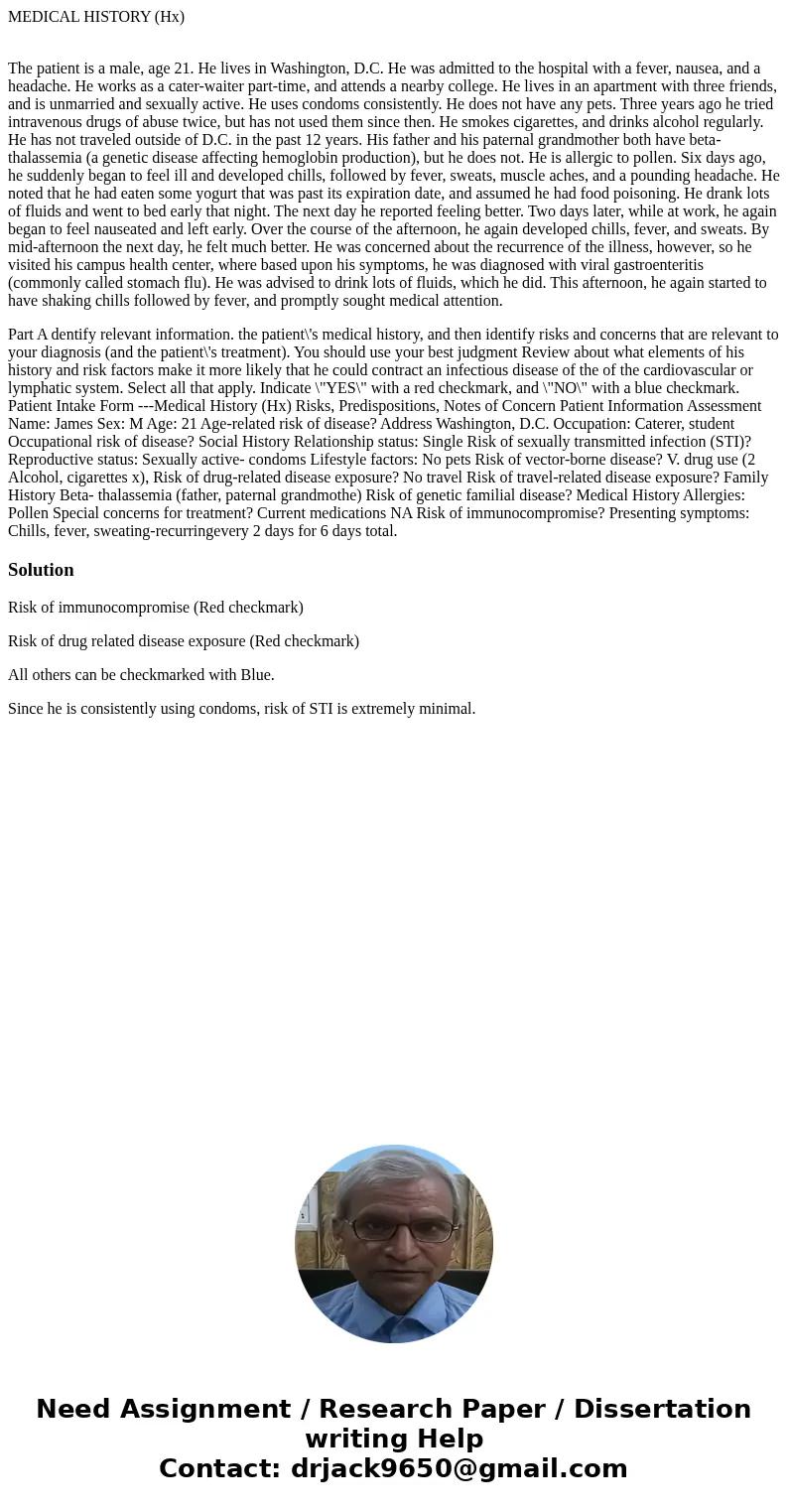MEDICAL HISTORY Hx The patient is a male age 21 He lives in
MEDICAL HISTORY (Hx)
The patient is a male, age 21. He lives in Washington, D.C. He was admitted to the hospital with a fever, nausea, and a headache. He works as a cater-waiter part-time, and attends a nearby college. He lives in an apartment with three friends, and is unmarried and sexually active. He uses condoms consistently. He does not have any pets. Three years ago he tried intravenous drugs of abuse twice, but has not used them since then. He smokes cigarettes, and drinks alcohol regularly. He has not traveled outside of D.C. in the past 12 years. His father and his paternal grandmother both have beta-thalassemia (a genetic disease affecting hemoglobin production), but he does not. He is allergic to pollen. Six days ago, he suddenly began to feel ill and developed chills, followed by fever, sweats, muscle aches, and a pounding headache. He noted that he had eaten some yogurt that was past its expiration date, and assumed he had food poisoning. He drank lots of fluids and went to bed early that night. The next day he reported feeling better. Two days later, while at work, he again began to feel nauseated and left early. Over the course of the afternoon, he again developed chills, fever, and sweats. By mid-afternoon the next day, he felt much better. He was concerned about the recurrence of the illness, however, so he visited his campus health center, where based upon his symptoms, he was diagnosed with viral gastroenteritis (commonly called stomach flu). He was advised to drink lots of fluids, which he did. This afternoon, he again started to have shaking chills followed by fever, and promptly sought medical attention.
Solution
Risk of immunocompromise (Red checkmark)
Risk of drug related disease exposure (Red checkmark)
All others can be checkmarked with Blue.
Since he is consistently using condoms, risk of STI is extremely minimal.

 Homework Sourse
Homework Sourse